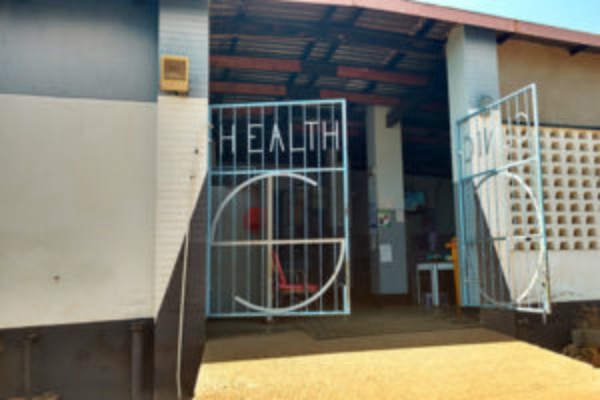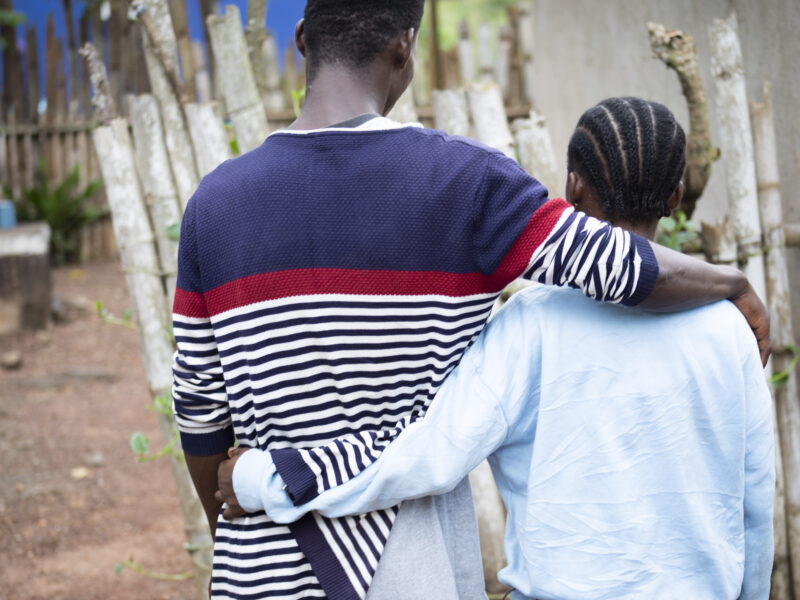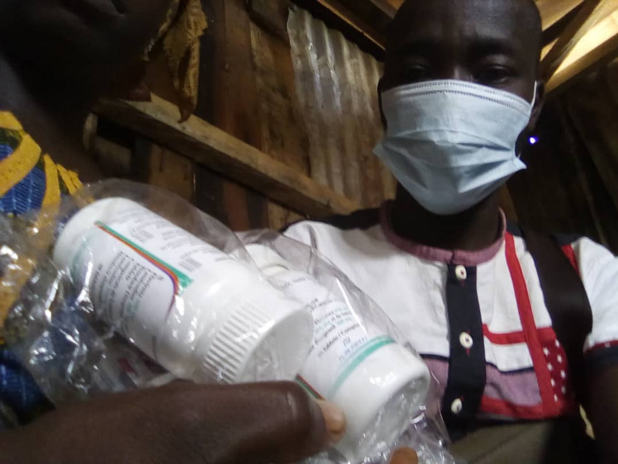Although one of Africa’s smallest countries, Swaziland has the highest prevalence of HIV in the world. A 2017 survey found that nearly a third of the population between the ages of 18 and 49 was HIV positive and there are about 2,600 new cases of HIV each year among those over the age of 15.
Good news finally came last month when the Swaziland government announced that the HIV epidemic is coming under control across all age groups throughout the country.
According to the latest Swaziland HIV Incidence Measurement Survey (SHIMS 2), new infections have been nearly halved among adults, and HIV viral load suppression – a key marker of the body successfully controlling the virus – has doubled in Swaziland since 2011. Over the same time period, the use of life-saving antiretroviral therapy (ART) nearly doubled in Swaziland, with more than 80 percent of adults living with HIV who know their status on ART.
Since late 2013, the Johns Hopkins Center for Communication Programs’ Health Communication Capacity Collaborative (HC3) has been working in Swaziland with support from U.S. President’s Emergency Plan for AIDS Relief (PEPFAR) through the United States Agency for International Development. HC3 Swaziland works on a variety of efforts to reduce the impact of HIV, using health communication to help stop its spread by reaching high-risk and hard-to-reach populations.
“Because of the severe HIV epidemic in Swaziland, it was critical for us to implement a combination HIV prevention package, scale up HIV care and treatment services, and engage in ongoing measurement of HIV incidence in order to assess the impact of these efforts,” Senator Sibongile Ndlela-Simelane, the honorable Minister of Health, Swaziland, said in a statement. The results of latest survey “reveal a dramatic improvement in the state of the epidemic in Swaziland and we are very encouraged by this progress. We understand that the battle is not over, and therefore we must maintain the momentum.”
Key to reducing HIV is encouraging more people to be tested so that if they are diagnosed with it they can be treated and will be less likely to spread it to others.
In Swaziland (population: 1.3 million), HC3 activities have been designed to reduce the spread of HIV and associated stigma as well as to encourage treatment-seeking behaviors. The three approaches are:
- Conducting community engagement workshops with traditional leaders, such as chiefs and their spouses
- Facilitating empowerment activities for young women through the DREAMS (Determined, Resilient, Empowered, AIDS-free, Mentored and Safe) partnership, which focuses on reducing infections among girls and women ages 10 to 24
- Supporting mobile health services in remote areas for outreach and care to key populations such as sex workers and men who have sex with men.
Receiving buy-in for HIV communication activities from Swaziland’s chiefs and their spouses is key for community engagement. Both are revered community members with the credibility needed to convey life-saving messages. HC3 trained more than 368 chiefs and their spouses in all four regions of the country as well as more than 5,900 other local government and traditional leaders in the importance of HIV prevention and how to share important messages with their communities. As a result, more than 15,000 people were tested for HIV and linked with appropriate services.
Through DREAMS-supported activities under HC3, chiefs have committed to addressing teen pregnancy, HIV prevention and safeguarding the well-being of young women, particularly from older men who often provide them with material goods in exchange for sex. One way that this is being putting into action is by ensuring that young women are not married off at very young ages. As a result of HC3’s efforts, some chiefs have started asking for birth certificates and collecting fines from men who impregnate underage girls.
At the same time, HC3 supports the economic and social empowerment of young women ages 20-24 through financial literacy self-help groups. These groups meet weekly to conduct savings and loan activities as well as gain information and skills around financial literacy to strengthen their economic assets, HIV prevention strategies, how to be assertive and communicate their needs and wants, job skills such as resume development and interview techniques, and networking with mentors using a manual HC3 developed for this purpose. Some young women have gone on to start businesses, such as opening small shops or selling cooked food, and are better able to support themselves.
Key populations — including sex workers and men who have sex with men — are the hardest hit by Swaziland’s HIV crisis. A 2011 survey found that an astounding 71 percent of female sex workers had HIV. It also found that 17 percent of men who have sex with men had HIV and nearly 70 percent of men were unaware of their status.
Because Swaziland’s key populations – particularly sex workers – are highly mobile, reaching them consistently with services can be challenging. Their working hours and the stigma associated with their trade often makes it difficult for them to seek services from static facilities. HC3 therefore partnered with the Family Life Association of Swaziland (FLAS) to deploy mobile health clinics across the country between 2014 and 2016, providing more than 4,100 HIV tests.
“The findings of the new survey are quite impressive,” says Sibongile Mndzebele, HC3 Swaziland Chief of Party. “Things are definitely getting better in certain populations. There is still work to be done as the findings show key gaps in HIV prevention and treatment for younger age groups. These groups are less likely to know their HIV status and be on treatment compared to the older age groups. The use of communication to change behavior still has a big role to play in getting the younger age groups to access HIV services.”
Along with the progress in Swaziland, PEPFAR-supported studies released in December for Malawi, Zambia, and Zimbabwe demonstrated significant progress toward controlling the HIV epidemics in these countries as well. CCP also carries out targeted PEPFAR-supported work in Malawi, Cote d’Ivoire and Mozambique.




